Katrina: Come Hell and High Water Review
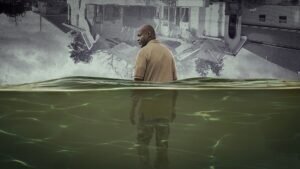
Director: Spike Lee
Date Created: 2025-08-27 18:17
4.5
Katrina: Come Hell and High Water Review: The three-part Netflix docu-series is executive-produced by Spike Lee. The series reunites the survivors, officials, and residents of New Orleans to look back at 2005 when Hurricane Katrina became one of the deadliest man-made disasters in United States history. Based on interviews, archival records, and 20-year hindsight, the series doesn’t merely offer facts – it tries to chronicle both the disaster and resilience of a city that did not surrender.
Katrina: Come Hell and High Water Review
I was a kid when the Katrina tragedy occurred in 2005, and I didn’t know anything was going on somewhere in the world. Netflix’s Katrina: Come Hell and High Water not only taught me about history, but it was also an emotional plunge into something I’d only ever heard the title of. As the Americans witnessed this tragedy on TV, I went through it years later as a fine documentary. That distance only made the show more poignant because it made me understand how much we really depend on governments during times of tragedy, and how terrible it feels when that trust is broken.
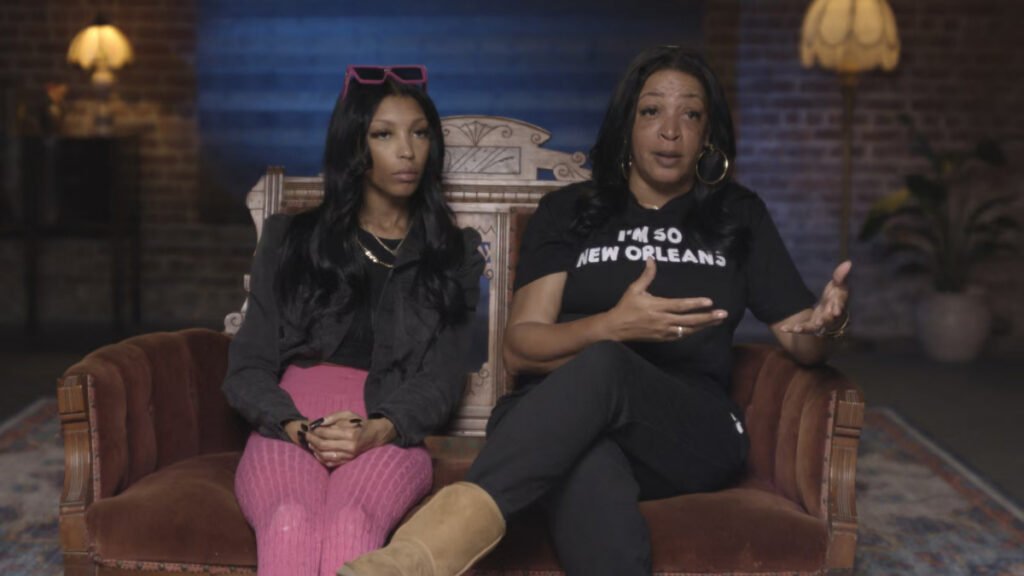
The docuseries does not just show the killing force of Hurricane Katrina. Instead, it shows how the city of New Orleans was left helpless by neglect and systemic failure. Levee breaches, extended rescue missions, and government neglect are all highlighted in the process. Katrina: Come Hell and High Water is not just a story of the act of nature but of how human complacency can exacerbate the issue.
The most poignant were the voices of the people. The survivors speak of lost homes, lost families, and lost communities. There is anguish in their voices, and it is real and enduring. And yet, the series never fails to remind us that New Orleans is not just about tragedy. It reminds us of its culture, of its music, of its heritage, and how these were the source of its people’s strength. The survivors speak of homes lost, families lost, and communities lost.
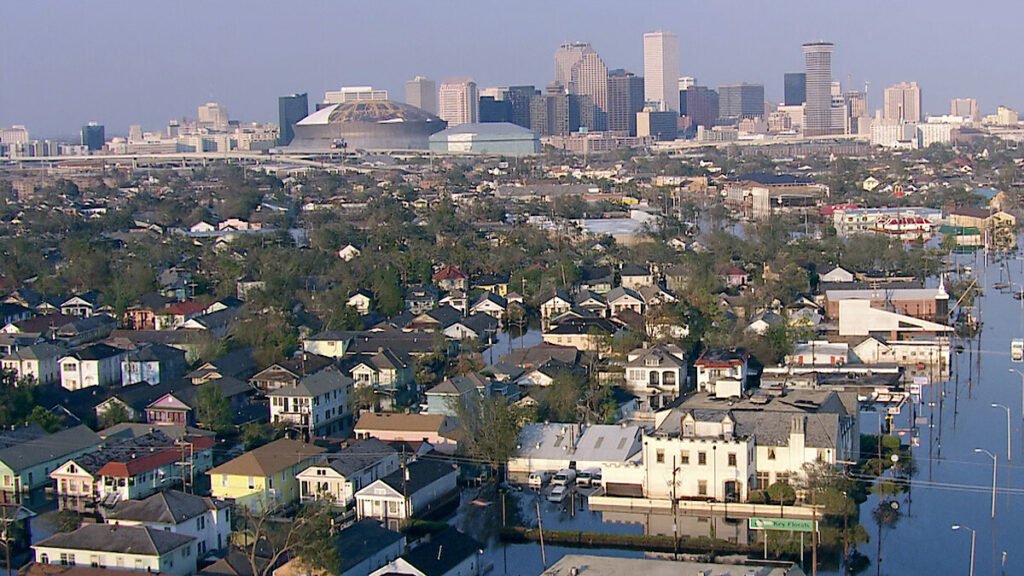
How the documentary is structured is engrossing. The old newsreel clips are cut with modern-day interviews, so you are glued to your seat even when you’ve watched it all before. You see officials making stern warnings prior to the storm, and then inexorably, the truth unravels into chaos. It is the “countdown” factor that refuses to let you avert your gaze. Too often, it appears as though you see history happen before your very eyes in real time.
Another good thing about the Documentary Katrina: Come Hell and High Water is that it strikes a balance between fact and feeling. The producers are not afraid to portray anger, accusation, or grief, but try as much as possible to tell us what went wrong at various levels – city, state, and federal. As someone like me, with hardly any knowledge about U.S. politics, the explanations were clear enough.
The one thing I loved best about Netflix Docuseries Katrina: Come Hell and High Water was that it was not scripted. It does not try to whitewash the face of the powerful. The documentary fingers sharply at the incompetence of the powerful and the way the poor and the Black people were treated like their lives didn’t matter. As an audience member, it’s difficult not to get angry, but that’s what makes the show as well. A good documentary must stir you, make you think, and even put you in a state of discomfort.
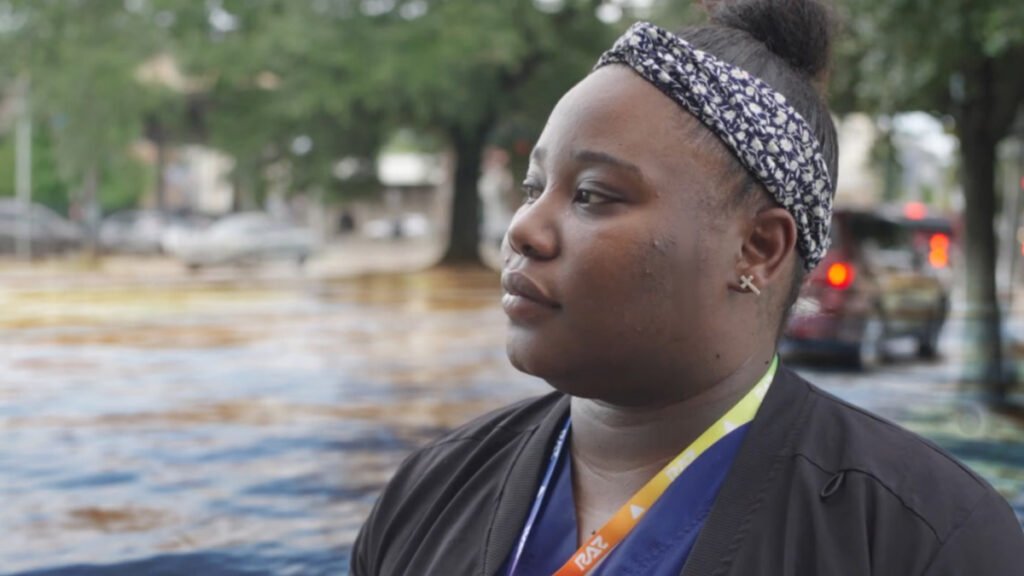
I also loved that the last episode avoids despair into resilience. Rather than ending strongly in destruction, it depicts how the survivors reconstructed their lives, how the artists regained themselves through art, and how the survivors gained strength from one another. That hopefulness makes the series heartbreaking and inspiring at once.
And yet, I must confess that Docuseries Katrina: Come Hell and High Water is difficult to view. Some of the stories are so heartbreaking that I had to take a break for a bit. It is draining for emotional viewers. And then also the detail is sometimes excessive – there are just too many levels of failure (political, social, economic), and if you’re reading about the subject for the first time, you’ll be lost. But still, I believe that this level of depth was inevitable because this is not an act of god but an act of fault.
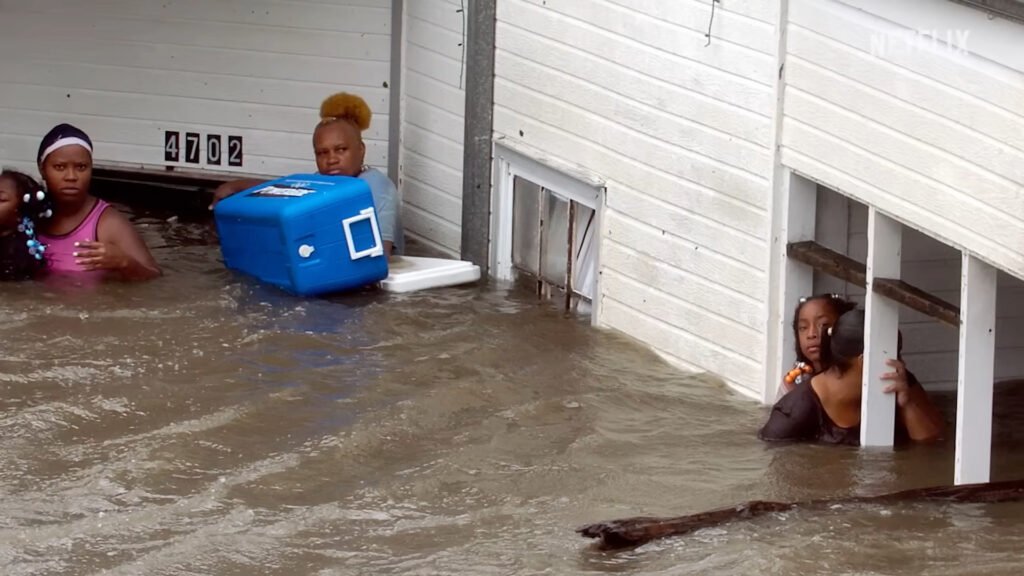
Despite Hurricane Katrina having happened nearly two decades ago, the problems highlighted in this documentary still persist today. Everywhere in the world, even in India, we continue to witness such catastrophes where the poor are left with nothing, and the government machinery turns out to be slow to respond. Watching this series brought me back to Indian floods and cyclones, where the common people relied on each other more than the government. So much so, that Katrina: Come Hell and High Water isn’t just about New Orleans – it is about society’s response to tragedy anywhere.
Katrina Come Hell and High Water Review: Summing Up
Overall, the Katrina: Come Hell and High Water documentary is excruciating, intense, and needs to be watched. It’s not entertainment, but a reminder long overdue of what occurs when politics, prejudice, and neglect meet in the wake of a natural disaster. For me, it was a moving and educational experience.
